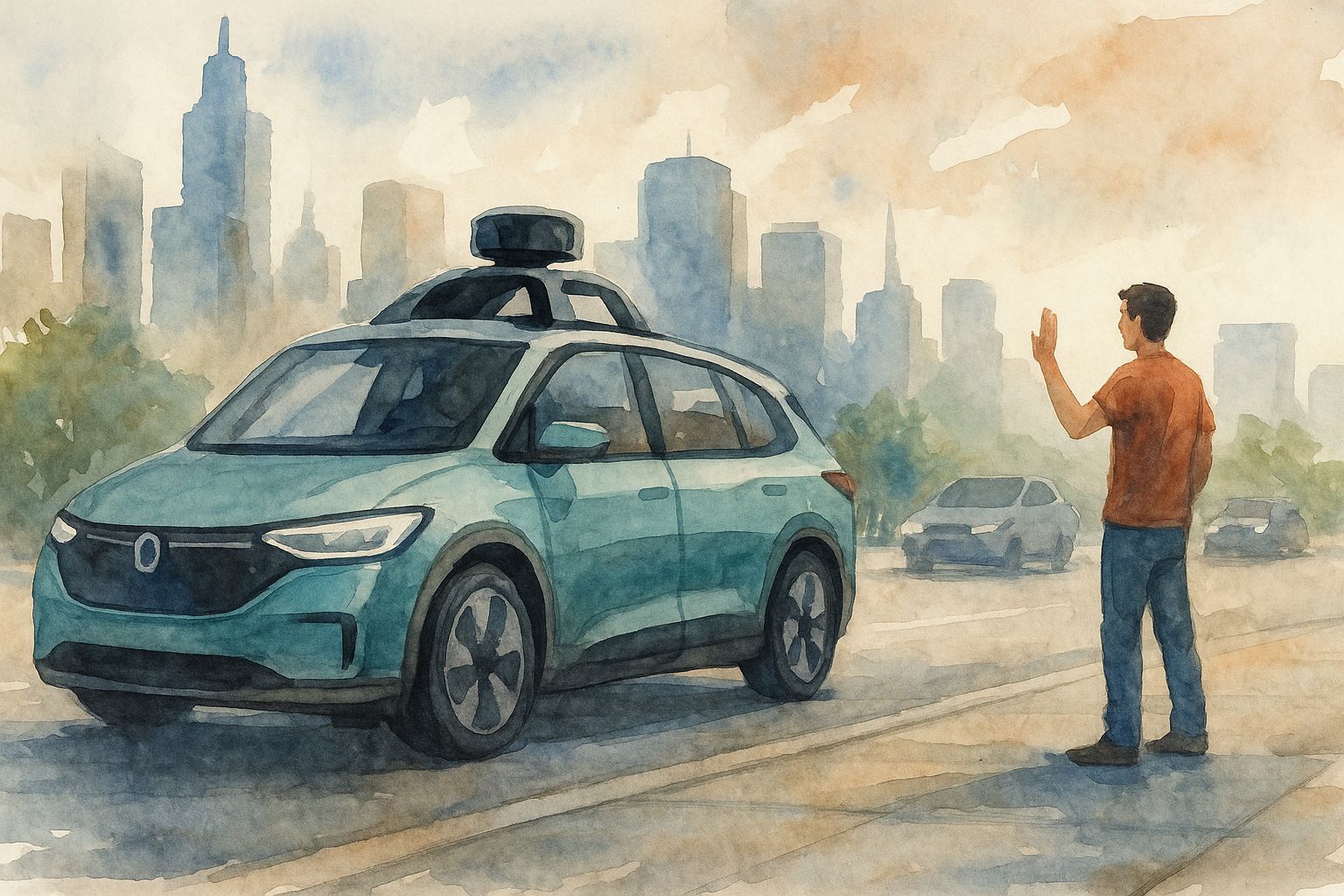- The Recap AI
- Posts
- OpenAI's first general AI agent arrives
OpenAI's first general AI agent arrives
PLUS: Delta's controversial AI pricing, AI that warps live video, and a Nuro-Uber robotaxi fleet
Good morning, AI enthusiast.
OpenAI is moving beyond just conversation with the launch of its first general AI agent. This new model is designed to autonomously operate a computer, handling complex workflows from research to using applications on a user's behalf.
The release puts OpenAI in direct competition with browser-native AI assistants. The key question now is which layer of the tech stack—the browser itself or an overlay on top of it—will ultimately win control of how we interact with the web?
In today’s AI recap:
OpenAI's first general AI agent arrives
Delta's controversial AI pricing
AI that warps live video
A Nuro-Uber robotaxi fleet
OpenAI's Agent Is Here

The Recap: OpenAI has launched ChatGPT Agent, a powerful new model that can autonomously use a computer to perform complex, multi-step tasks. It effectively gives users an AI assistant that can execute workflows involving research, data analysis, and using applications.
Unpacked:
The agent combines the deep research capabilities of one internal model with the action-taking ability of another (known as Operator). This allows it to browse the web, access a sandboxed terminal, and interact with files to complete tasks from start to finish.
Unlike some developer-focused agents that run locally, ChatGPT Agent operates in a sandboxed virtual machine in the cloud for each request. This makes it more accessible for non-technical users but offers less customization than more complex tools.
This launch intensifies the race for agentic dominance, placing OpenAI in direct competition with browser-native AIs. The core battle is over which layer of the tech stack—the browser itself or an abstraction on top of it—will ultimately manage how users interact with the web.
Bottom line: This release marks a significant step beyond conversational AI, offering a tool that can actively complete workflows on a user's behalf. The introduction of general-purpose agents into a mainstream product signals that autonomous AI is moving closer to becoming a standard productivity tool for everyone.
Delta's 'Predatory' AI Pricing

The Recap: Delta Air Lines confirmed on an earnings call it’s using AI to create personalized ticket prices, with a long-term strategy to eliminate static fares entirely.
Unpacked:
Delta plans for 20% of its ticket prices to be set by AI by the end of the year, up from 3% today, citing “amazingly favorable” early results.
The pricing engine is powered by Fetcherr, an Israeli tech company that also works with other carriers like Virgin Atlantic and WestJet.
The move has sparked backlash from lawmakers who call it “predatory pricing,” while consumer advocates worry the practice is akin to “hacking our brains” to find a user's maximum price.
Bottom line: This move marks a fundamental shift away from universal rates to what an algorithm decides you will pay. Delta's success could pave the way for similar AI-driven dynamic pricing across the entire travel industry.
Where AI Experts Share Their Best Work
Join our Free AI Automation Community
Join our FREE community AI Automation Mastery — where entrepreneurs, AI builders, and AI agency owners share templates, solve problems together, and learn from each other's wins (and mistakes).
What makes our community different:
Real peer support from people building actual AI businesses
Complete access to download our automation library of battle-tested n8n templates
Collaborate and problem-solve with AI experts when you get stuck
Dive into our course materials, collaborate with experienced builders, and turn automation challenges into shared wins. Join here (completely free).
AI That Warps Video Live

The Recap: Startup Decart AI has launched Mirage, a new model that lets you transform live video streams—like video chats or game feeds—into entirely new artistic styles using simple text prompts.
Unpacked:
Mirage operates in near real-time, generating 24 frames per second with less than 40 milliseconds of latency, making it fast enough for live interaction.
The model overcomes the computationally taxing challenge of live video manipulation by using custom code optimized for Nvidia chips and a unique training method to ensure coherence.
Potential applications range from creating interactive game worlds on the fly to applying dynamic, cinematic filters to streams on platforms like TikTok and Instagram.
Bottom line: This technology marks a significant step beyond generating pre-rendered video clips, opening the door for truly interactive AI-driven content. It points toward a future where anyone can dynamically alter their digital reality, from video calls to live gaming.
The Robotaxi Super-Team

The Recap: Nuro, Lucid Motors, and Uber are joining forces in a new partnership to launch a fleet of over 20,000 autonomous electric vehicles on Uber's platform. The first robotaxis are scheduled to hit the road in a major US city starting in 2026.
Unpacked:
The partnership combines Lucid's Gravity EV, which boasts a 450-mile range, with Nuro’s Driver™, a Level 4 self-driving system designed for scalability.
Uber is backing the deal with planned multi-hundred-million dollar investments in both Nuro and Lucid, aiming to deploy the 20,000+ vehicles over a six-year period.
A prototype is already operating autonomously on a closed test track in Las Vegas, signaling that development is well underway ahead of the planned public launch.
Bottom line: This alliance creates a powerful, vertically integrated solution for autonomous ride-hailing by pairing premier vehicle hardware with proven AI and a massive distribution network. The move signals a major acceleration in the race to make large-scale robotaxi services a practical reality for millions of users.
The Shortlist
TSMC posted a record-breaking 61% surge in second-quarter profit, driven by overwhelming demand for its advanced high-performance computing chips from major AI players like Nvidia.
The University of Bristol launched Isambard-AI, the U.K.’s most powerful supercomputer, delivering 21 exaflops of AI performance with over 5,400 NVIDIA GH200 Grace Hopper Superchips.
The Future of Life Institute warned that top AI labs are "fundamentally unprepared" for the risks of AGI, giving none of the evaluated companies a grade higher than 'D' for existential safety planning.
A new study suggests developers using AI coding assistants are less productive than they believe, finding participants took 19% longer to complete tasks with AI despite perceiving a 24% speed-up.
What did you think of today's email?Before you go we’d love to know what you thought of today's newsletter. We read every single message to help improve The Recap experience. |
Signing off,
David, Lucas, Mitchell — The Recap editorial team
